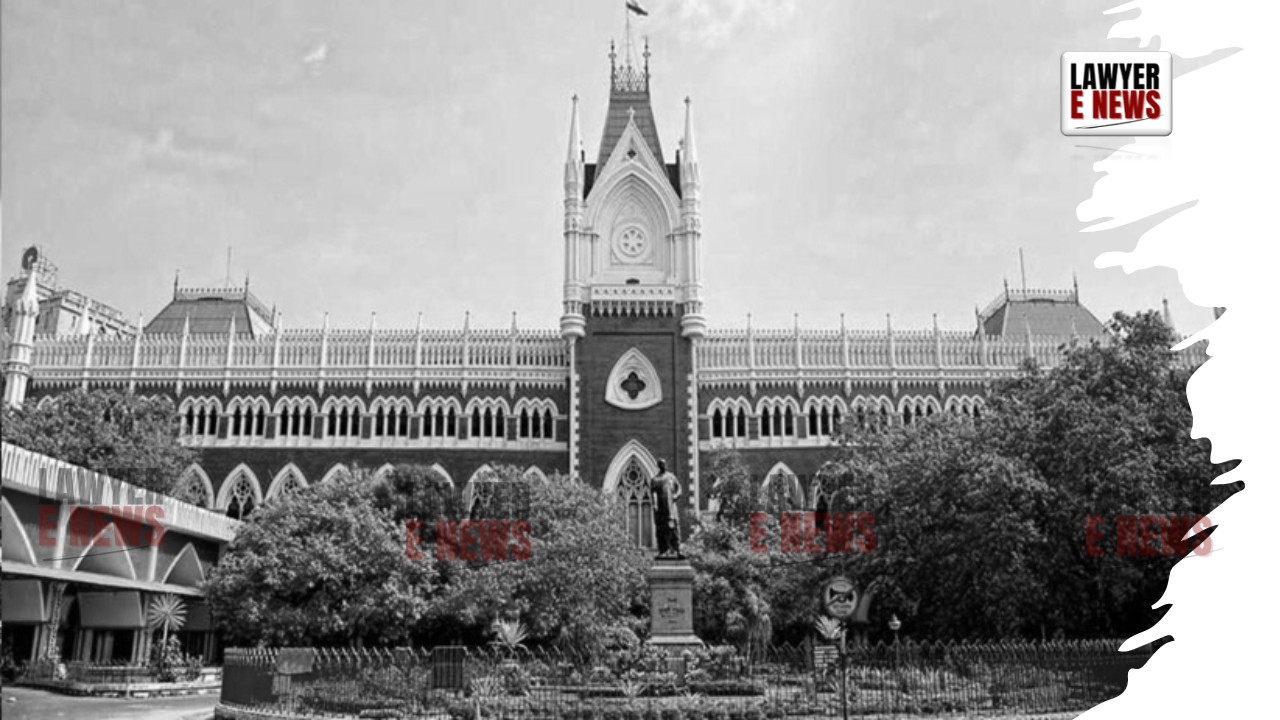-
by Admin
15 February 2026 5:35 AM



"Fraudulent land transactions involving government property require thorough investigation and cannot be prematurely quashed - Calcutta High Court. These petitions sought quashing of criminal proceedings in G.R. Case No. 304 of 2023, arising from Serampore Police Station Case No. 53 of 2023. The allegations pertain to fraudulent land transactions involving government-vested land through fabricated powers of attorney. Justice Shampa Dutt (Paul) held that the prima facie evidence of fraud and forgery warranted a full-fledged investigation and ruled out premature interference by the court.
The court emphasized that economic offences involving public property have serious societal implications, making it imperative to allow the investigation and subsequent trial to proceed.
"Fabrication of power of attorney undermines public interest and cannot be condoned without due investigation."
The case involved allegations of fraudulent transfer of government-vested land measuring approximately 49 cottahs, located in Mouza-Mahesh, Hooghly. The land, originally belonging to Bangeswari Cotton Mills Ltd., had reportedly vested in the government after the closure of the factory in the 1970s, under Section 6(3) of the West Bengal Estate Acquisition Act, 1953, and Section 4(c)(1) of the West Bengal Land Reforms Act, 1955.
Seema Singh alleged that fabricated powers of attorney were used to transfer government-vested land. These powers of attorney were purportedly executed in the names of fictitious individuals (Subedar Khan and Mastu Mia), who were falsely shown as owners. Based on these documents, land parcels were sold to unsuspecting buyers at exorbitant prices, ranging between Rs. 7 to 15 lakh per cottah.
Aftab Alam accused local councilors Nasima Parween and Akbar Ali of orchestrating the fraudulent transactions. The councilors allegedly lured intermediaries to execute the fraudulent powers of attorney and facilitated the sale of the land. Multiple sale deeds (22 in total) were executed, and significant financial transactions occurred. It was alleged that municipal mutations were carried out without verifying the legitimacy of the documents.
The petitioners included individuals who acted as witnesses, councilors, and intermediaries in the transactions, all of whom denied any knowledge of the illegality.
The court found prima facie evidence of fraudulent execution of powers of attorney to sell government-vested land. It held that Section 6(3) of the WBEA Act and Section 4(c)(1) of the WBLR Act rendered the land vested with the state, barring any private ownership or sale. The use of fabricated documents and fictitious names constituted offences under Sections 420 (cheating), 467 (forgery), 468 (forgery for the purpose of cheating), 409 (criminal breach of trust by a public servant), 120B (criminal conspiracy), and 34 (common intention) of the IPC.
The Court remarked: "The transfer of government land on the basis of fabricated documents is a serious offence with far-reaching societal implications."
The petitioners argued that they acted in good faith, with no knowledge of the fabricated documents. However, the court observed that their involvement as witnesses and identifiers in multiple sale deeds required investigation to ascertain their culpability.
"Mere denial of knowledge of the illegality is insufficient. The role of all parties involved must be thoroughly examined during the investigation and trial," the court emphasized.
The petitioners sought quashing of the proceedings under Section 482 of the Cr.P.C., which empowers High Courts to prevent abuse of the process of law. The court reiterated that this power should be exercised sparingly and only in exceptional circumstances
Citing Gian Singh v. State of Punjab and State of Madhya Pradesh v. Laxmi Narayan, the court observed:
"Economic offences and crimes affecting public interest demand a full-fledged investigation. Quashing cannot be justified when there is prima facie evidence of fraud, conspiracy, and forgery."
The court noted that substantial material, including statements recorded under Section 164 Cr.P.C. and bank account details, indicated financial transactions linked to the fraudulent land sales. The court directed the investigation to continue unhindered.
"The investigation must be extensive, considering the scale of fraud and the involvement of multiple parties," the court held.
The court underlined that fraudulent land transactions involving government property constitute an economic offence, affecting not just the parties involved but also the public at large. Such offences have a serious societal impact, necessitating stringent judicial scrutiny.
"Economic offences strike at the root of public trust and cannot be treated as mere private disputes," the judgment stated.
The court dismissed all four revision petitions, emphasizing that the continuation of criminal proceedings was essential to ensure justice and safeguard public interest.
The Calcutta High Court's ruling underscores the judiciary's commitment to safeguarding public property and deterring fraudulent activities. By dismissing the petitions for quashing the proceedings, the court reaffirmed the principle that economic offences and crimes against public interest warrant thorough investigation and cannot be prematurely terminated.
Date of Decision: 13 January 2025
